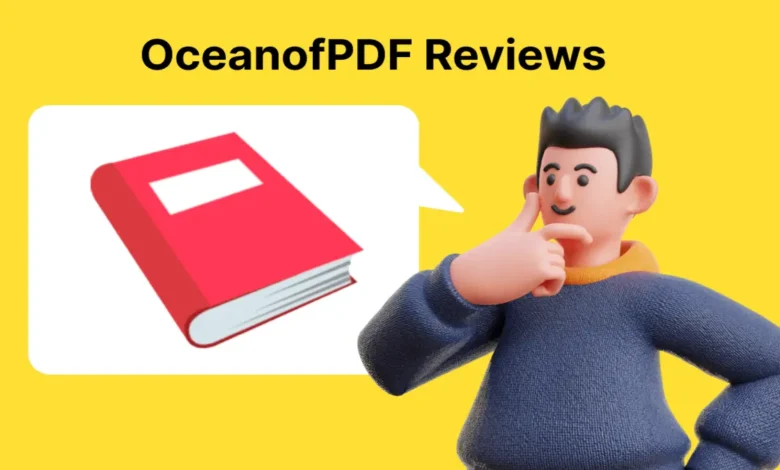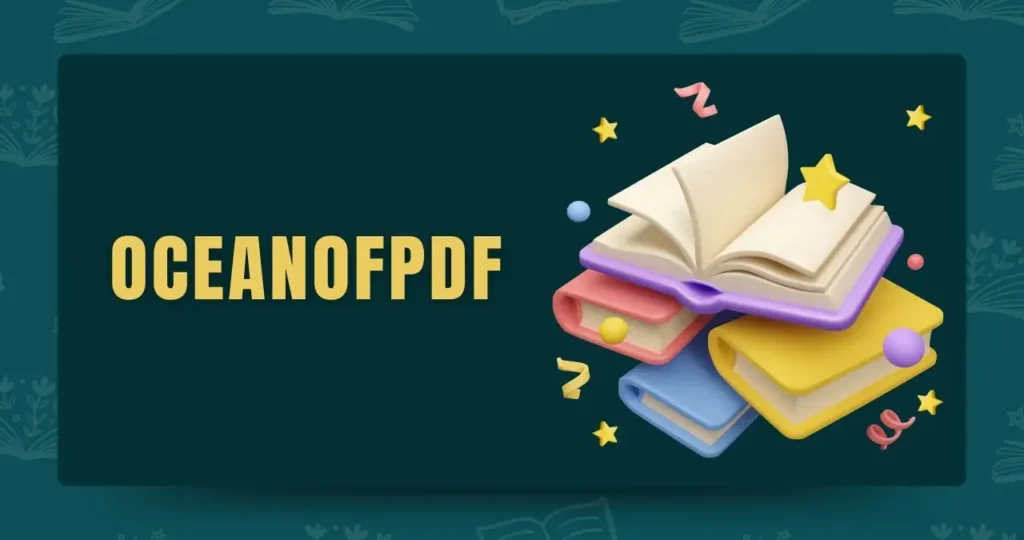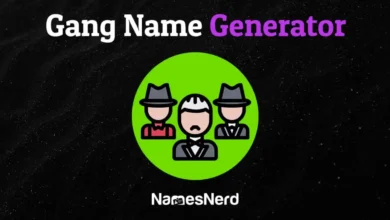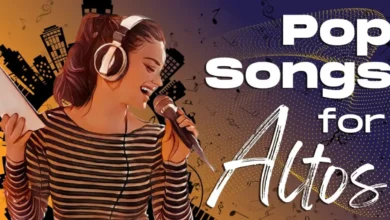OceanofPDF: Why Authors and Publishers Oppose Such Sites

Introduction
In the digital age, accessing books has become easier than ever. Websites like OceanofPDF offer free eBook downloads, making literature seemingly accessible to everyone. However, while such sites may appear beneficial to readers, they pose significant ethical, legal, and economic challenges for authors and publishers.
This article explores why authors and publishers strongly oppose platforms like OceanofPDF, examining the legal implications, financial losses, and broader impact on the literary industry.
What is OceanofPDF?

OceanofPDF was a popular website that provided free PDF downloads of books, including bestsellers, academic texts, and newly released titles. While it gained traction among readers looking for free book access, it operated in a legal gray area by distributing copyrighted material without permission.
The site has faced multiple shutdowns due to copyright infringement claims, yet mirror sites and alternatives continue to emerge. Despite its user convenience, OceanofPDF and similar platforms undermine the hard work of authors, publishers, and everyone involved in the book industry.
Why Authors and Publishers Oppose OceanofPDF
1. Violation of Copyright Laws
The most significant issue with OceanofPDF is that it illegally distributes copyrighted books without authorization.
- Copyright infringement: Books are protected under intellectual property laws, meaning authors and publishers hold exclusive rights to distribute their work.
- No revenue for creators: When books are shared for free, authors and publishers receive no compensation for their efforts.
- Legal consequences for users: Downloading pirated books can also put users at risk of legal action, though enforcement is rare.
Publishing houses and authors frequently issue DMCA takedown notices to shut down such sites, but new ones often reappear under different domains.
2. Financial Losses for Authors and Publishers
Writing a book involves years of research, drafting, editing, and marketing. Authors rely on book sales to earn a living, and piracy directly cuts into their income.
- Lost royalties: For every illegally downloaded copy, authors lose potential earnings.
- Impact on publishers: Publishers invest in editing, printing, and promoting books. Piracy reduces their return on investment, making it harder to support new authors.
- Fewer advances for new writers: If publishers lose revenue, they may offer more minor advances or reject riskier projects, stifling creativity in the industry.
A 2017 Nielsen report estimated that piracy costs the publishing industry over $300 million annually—a figure that has likely grown with the rise of digital piracy.
3. Devaluation of Creative Work
When books are free, it sends a message that literary work has no monetary value.
- Readers may avoid purchasing books: If free alternatives exist, even paying customers might turn to piracy.
- Authors struggle to sustain their careers. Many writers already earn modest incomes, and piracy makes it even harder to make a living from writing.
- Reduced quality of future books: If authors cannot earn enough, they may abandon writing or produce fewer works, limiting the diversity of literature available.
4. Risks for Readers
While OceanofPDF seems like a harmless way to access books, it comes with hidden dangers:
- Malware and viruses: Pirated sites often contain malicious ads or infected files.
- Poor formatting and errors: Unofficial PDFs may have missing pages, typos, or incorrect formatting.
- No updates or support: Legitimate eBook platforms (like Kindle or Google Books) provide updates, while pirated copies remain static.
5. Ethical Concerns
Beyond legality and finances, using sites like OceanofPDF raises ethical questions:
- Is it fair to the author? Writing a book is a labor of love, and authors deserve compensation.
- Does piracy harm the industry? Yes—when publishers lose money, they take fewer risks with new voices.
- What about libraries and legal free books? Many legal alternatives exist (Project Gutenberg, Open Library) that don’t exploit creators.
What Can Be Done to Combat Piracy?
1. Legal Alternatives to OceanofPDF
Instead of using pirated sites, readers can access books legally and affordably through:
- Public libraries (Libby, OverDrive) – Free eBook loans with a library card.
- Free legal eBook platforms include Project Gutenberg (public domain books), Open Library, and ManyBooks.
- Subscription services include Kindle Unlimited, Scribd, and Audible (for audiobooks).
- Author/publisher promotions – Many writers offer free chapters or discounts via their websites.
2. Supporting Authors Directly
- Buy books from official retailers (Amazon, Barnes & Noble, Book Depository).
- Leave reviews – Positive reviews help authors gain visibility.
- Attend book events – Purchasing signed copies supports writers directly.
3. Raising Awareness About Piracy’s Impact
Educating readers on how piracy affects authors can reduce the demand for illegal downloads. Social media campaigns like #PiracyHurtsAuthors highlight stories of writers struggling due to lost income.
4. Stronger Anti-Piracy Measures
Publishers and authors are taking action by:
- Issuing DMCA takedowns to shut down illegal sites.
- Working with ISPs to block access to piracy websites.
- Using digital watermarks to trace leaked copies.
Conclusion: Why Avoiding OceanofPDF Matters
While OceanofPDF and similar sites offer free access to books, they come at a high cost to authors, publishers, and the future of literature. Piracy undermines creativity, reduces writers’ earnings, and risks the sustainability of the publishing industry.
Readers who love books should support authors by choosing legal alternatives. By purchasing books, using libraries, or accessing free legal eBooks, you contribute to a thriving literary ecosystem where writers can continue producing the stories we love.
The next time you consider downloading a book from OceanofPDF, remember that the real people behind those pages deserve fair compensation for their work.
FAQs About OceanofPDF
1. Is OceanofPDF legal?
No, OceanofPDF distributes copyrighted books without permission, making it illegal.
2. Can I get in trouble for using OceanofPDF?
While individual users are rarely prosecuted, downloading pirated content is against the law in many countries.
3. Are there safe alternatives to OceanofPDF?
Yes! For free legal books, try Project Gutenberg, Open Library, or your local library’s digital collection.
4. How does piracy affect new authors?
Piracy reduces sales, making it harder for debut authors to secure publishing deals or earn a sustainable income.
5. What should I do if I’ve used OceanofPDF before?
Consider purchasing books you enjoyed or supporting authors through Patreon, reviews, or social media.
By understanding the real impact of piracy, readers can make informed choices that support the books and authors they love. Say no to OceanofPDF—opt for legal, ethical reading options instead!
FAQs About OceanofPDF and Why Authors & Publishers Oppose It
1. Is OceanofPDF legal?
No, OceanofPDF is not legal. It distributes copyrighted books without permission from authors or publishers, violating intellectual property laws. Many countries have strict anti-piracy regulations, and websites like OceanofPDF often face shutdowns due to copyright infringement claims.
2. Can readers get in trouble for downloading books from OceanofPDF?
While most legal actions target website operators rather than individual users, downloading pirated books is still technically illegal in many regions, users risk exposure to malware, and in rare cases, copyright holders may pursue fines or warnings against frequent downloaders.
3. How does piracy through sites like OceanofPDF hurt authors?
Every pirated download equals a lost sale, directly reducing an author’s royalties. Many writers earn modest incomes, and piracy makes it harder for them to sustain their careers. Over time, this can discourage new authors from entering the industry, leading to fewer diverse published books.
4. What are the best legal alternatives to OceanofPDF?
Instead of using illegal sites, try:
- Public libraries (Libby, OverDrive) – Free eBook loans with a library card.
- Free legal platforms include Project Gutenberg (public domain books) and Open Library.
- Subscription services include Kindle Unlimited, Scribd, and Audible (which offers free trials).
- Author/publisher giveaways – Many writers release free samples or discount codes.
5. How can readers support authors if they can’t afford books?
If purchasing books isn’t an option, you can still help authors by:
- Borrowing from libraries (library loans contribute to author royalties in some countries).
- Leaving reviews on Amazon, Goodreads, or social media to boost visibility.
- Sharing legally free books (e.g., ARCs, author promotions) instead of pirated copies.





